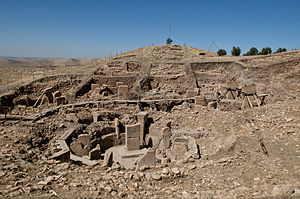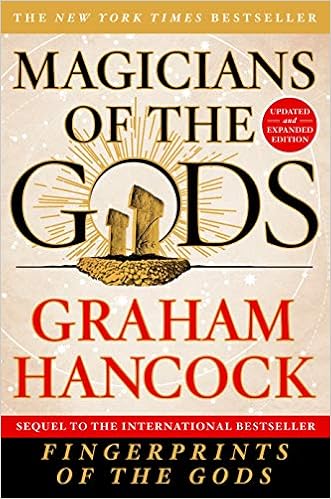Magicians of the Gods, an Audiobook by Graham Hancock
Thumbing his nose, literarily speaking, at mainstream archaeological academics, author and historian Graham Hancock posits that a meteor struck the earth between 12,800 and 11,600 years ago. It was immense, and broke into so many destructive chunks and shards passing through the atmosphere , that it wrought planet-wide havoc, not only to the landscape and weather, but to the early human and animal inhabitants.

Hancock is a Scot who has devoted much of his life to the study of ancient civilizations and what happened to them. He’s author of at least 17 books exploring this and related subjects. I was introduced to Hancock’s work by a friend and began by listening to the Audible version of Supernatural, but soon tired of it due to its over-reliance on citing data and Hancock’s, shall I say, loquaciousness? It was for me like being forced to read a calculus textbook that repeated and repeated endless examples of something made clear the first time. I would come to learn in the next Hancock book I decided to listen to that this is, in fact, the author’s rather pedantic way of convincing the reader of his points. Oh, well.

But I enjoyed Graham’s philosophical, historical, archaeological, mystical (dare I add psychedelic) interests and, at my friend’s suggestion, downloaded another of his books: Magicians of the Gods, which was much more interesting. There is no doubt in my mind that Hancock strains credulity with his provocative observations and his ability to describe a wide range of seemingly random events which Hancock goes to great lengths to display their similarities being no accident – for example, that every culture on earth has a flood and ark story, or that very early mankind perceived profound correspondences between cometary science and astrology imprinted across civilizations from the dawn of mankind to the present – the very things scientists an academics apparently scoff at.
Yet, upon finishing my listening, I had to ask myself, how can there be any doubt that at least some of what he has discovered is true? Hancock takes on the establishment with both fists in the final chapters of this book and wins the fight for open-mindedness. Another of his traits I admire is that he has traveled to most of the places he writes about, often more than once, and has talked to people who have carried forth the profound oral traditions, embedded in ancestral consciousness. (His wife, a photographer, travels with him, creating a visual path through this very complex exploration.) For example, it was Plato who (apparently) first wrote about the lost city of Atlantis. Hancock finds the memories of Atlantis extant in the myriad islands of Samoa, which is where great proof of the meteor (between 12,800 and 11,600 years ago) shattering the continent and fragmenting it into those selfsame islands is still recalled by today’s wise men and shamans.
Perhaps most intriguing is the lost city of Göbekli Tepe in southeastern Turkey where, Wikipedia tells us, are found “the Pre-Pottery Neolithic A (PPNA), circles of massive T-shaped stone pillars were erected—the world’s oldest known megaliths. Dated at around 9,500 BCE, these megaliths are 5,500 years older than the first cities of Mesopotamia and 7,000 years older than Stonehenge.” Now a World Heritage site, Göbekli Tepe remains in large part a mystery to modern science.
All of which, in praise of Graham Hancock , goes to point out there is so very much we do not know about ourselves and our planet. I listened to the Audible version of Magicians of the Gods, which is narrated with authority by the author himself. If you have an interest in the rise (and often the disappearance) of civilizations, in how astrology or astronomy can illuminate about our heritage, or the histories of ancient cultures, or just getting an idea how contiguously the pieces of life on Planet Earth came to be what it is today, you will enjoy this book.
Next week: I rage against those who would worship the false idols of publishing.




